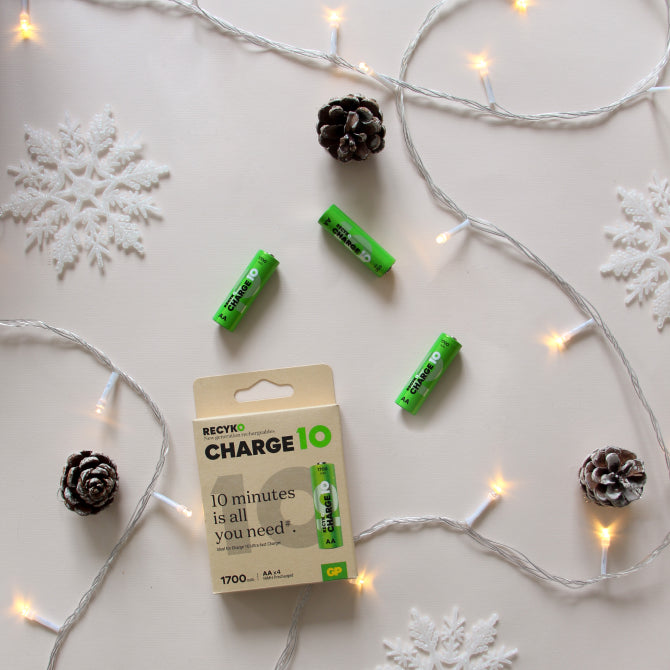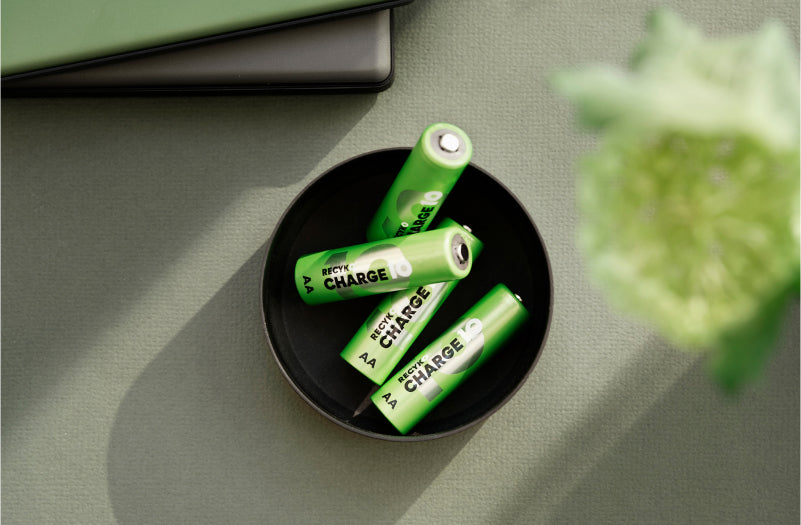

Storing unused batteries correctly over the winter months is important to ensure their lifespan. Many tools, garden gadgets, toys and electrical home accessories get stored over this period. It’s important to take into consideration how and where you store your batteries, whether single-use or rechargeable.
Here at GP, we want to ensure your batteries survive storage with their lifespan intact and importantly save your wallet some cost.
Don’t leave batteries in devices and left in sheds, garages, or outdoors. We recommend storing your batteries at room temperature, ideally 15° Celsius, the perfect temperature for most batteries. If it’s a little warmer that’s fine, up to around 24° Celsius. However, make sure to avoid direct sunlight, as this will kill your batteries fast.
Very frequently people overlook cleaning their batteries before storing them. Dirt and corrosion can increase a battery's discharge rate. Clean casings and terminals thoroughly with a clean dry rag and again once you intend to use them again to keep your batteries in tip-top condition.
About to throw away battery packaging? Got a new pack you’re about to rip open? Don’t!
Keeping batteries in their original packaging until you need them protects them from environmental factors like humidity. Keeping the packaging also keeps it from the rubbish bin and gives you an ideal way to store batteries at home over winter when they aren’t needed. It also helps you separate old and new batteries and keeps terminals from coming in contact with metal, more on that in a minute.
You don’t want to end up in a situation where you lose track of a fresh battery over a partially used one. Use separate containers, hopefully with the batteries inside their original packaging as discussed. Batteries of different types or different manufacturers can react with each other and cause leaks or other damage, so be mindful of this too. Also if a device requires more than one battery it’s best that the batteries used share a similar capacity.
This one is a no-brainer, metal coming into contact with the terminals on batteries can conduct electricity, short-circuit, and also drain batteries as well as cause heat and a potential fire risk. Ensure that positive and negative terminals can’t come into contact with each other, in a pinch you can also cover terminals with masking tape, with the risk of repeating ourselves, this is why you should keep your batteries' original packaging to make your life and storage easier!
Always be mindful of humidity when storing batteries, too much humidity could cause condensation, corrosion, leakage, and damage to batteries. Alkaline batteries can be stored in moderately humid conditions (35 to 65% relative humidity). All other batteries prefer a drier environment, additionally don’t store batteries on the ground, as this can encourage condensation too.


A Final Note On Storing Rechargeable Batteries
Some rechargeable batteries will permanently damage themselves if kept in a discharged state. The ideal level of charge depends on the technology:
- TNickel-based (NiMH, NiZn, NiCd) - Can be stored at any state of charge.
- Lead Acid - Store at full charge to avoid sulfation, which lowers capacity.
- Lithium Ion (Li-ion) - For best results, store at 30–50% maximum charge. If you will be unable to recharge within a few months, store at full charge instead.
If you store your batteries properly, their shelf life will be extended, and any safety hazards will be reduced extensively. Just keep these tips on how to store batteries at home in mind and be sure to share them with your family! If you find yourself in need of any new batteries over the winter, check out our range here.



